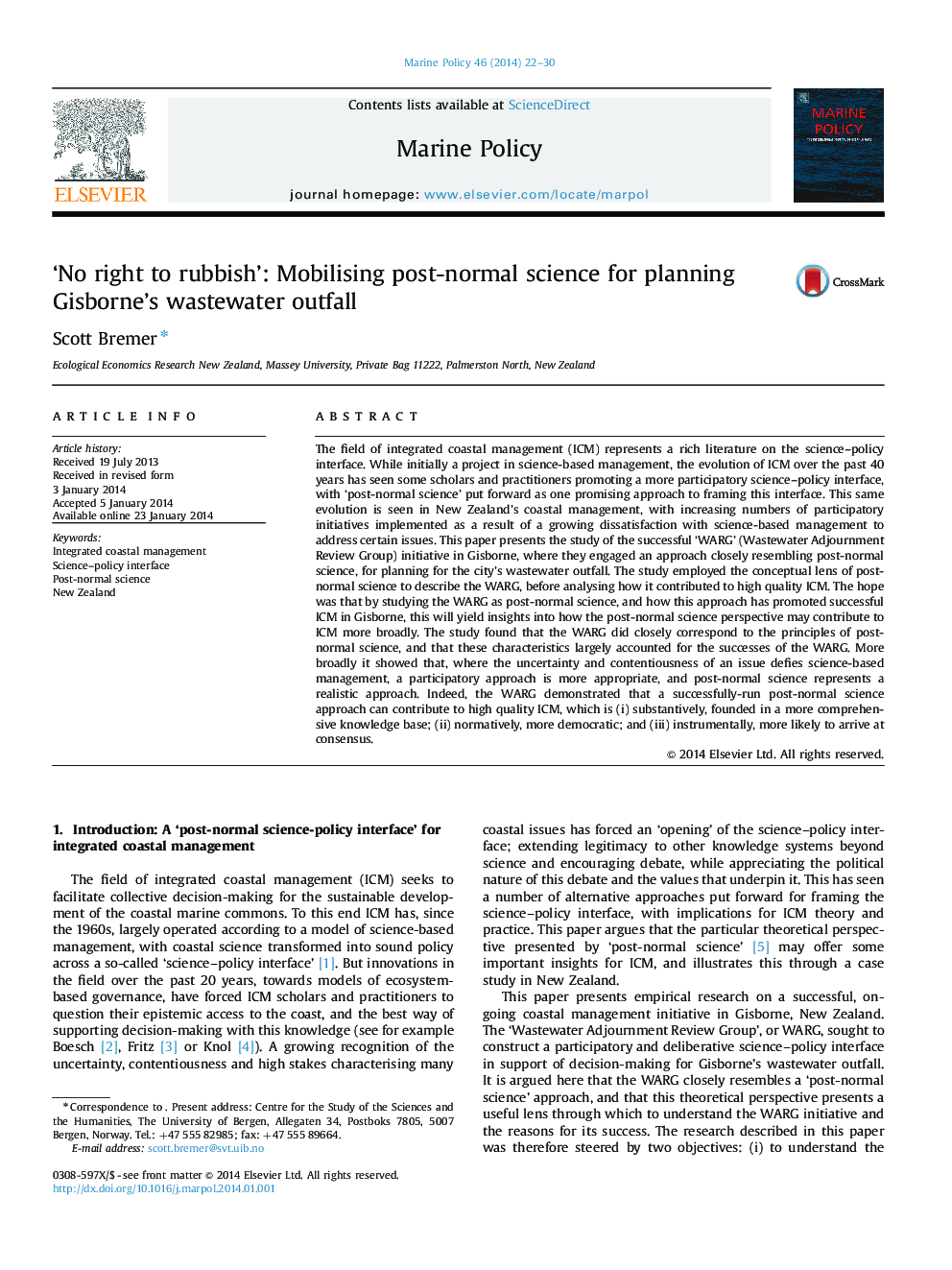| کد مقاله | کد نشریه | سال انتشار | مقاله انگلیسی | نسخه تمام متن |
|---|---|---|---|---|
| 1060403 | 1485533 | 2014 | 9 صفحه PDF | دانلود رایگان |

• The post-normal science approach is promising for integrated coastal management.
• The paper explores an initiative in Gisborne resembling post-normal science.
• ‘Wicked’ coastal issues demand a participatory science–policy interface.
• A post-normal science approach can fulfil integrated coastal management principles.
The field of integrated coastal management (ICM) represents a rich literature on the science–policy interface. While initially a project in science-based management, the evolution of ICM over the past 40 years has seen some scholars and practitioners promoting a more participatory science–policy interface, with ‘post-normal science’ put forward as one promising approach to framing this interface. This same evolution is seen in New Zealand’s coastal management, with increasing numbers of participatory initiatives implemented as a result of a growing dissatisfaction with science-based management to address certain issues. This paper presents the study of the successful ‘WARG’ (Wastewater Adjournment Review Group) initiative in Gisborne, where they engaged an approach closely resembling post-normal science, for planning for the city’s wastewater outfall. The study employed the conceptual lens of post-normal science to describe the WARG, before analysing how it contributed to high quality ICM. The hope was that by studying the WARG as post-normal science, and how this approach has promoted successful ICM in Gisborne, this will yield insights into how the post-normal science perspective may contribute to ICM more broadly. The study found that the WARG did closely correspond to the principles of post-normal science, and that these characteristics largely accounted for the successes of the WARG. More broadly it showed that, where the uncertainty and contentiousness of an issue defies science-based management, a participatory approach is more appropriate, and post-normal science represents a realistic approach. Indeed, the WARG demonstrated that a successfully-run post-normal science approach can contribute to high quality ICM, which is (i) substantively, founded in a more comprehensive knowledge base; (ii) normatively, more democratic; and (iii) instrumentally, more likely to arrive at consensus.
Journal: Marine Policy - Volume 46, May 2014, Pages 22–30